Cognitive Behavioral Therapy (CBT) is one of the most effective and scientifically-proven methods in modern psychotherapy. This structured and goal-oriented treatment helps individuals understand and change the complex relationships between their thoughts, feelings, and behaviors.
At its core, CBT is based on a simple yet powerful idea: our thoughts shape how we feel and influence what we do. By learning to recognize and change unhelpful thinking patterns, we can make significant improvements in our emotional well-being and daily lives.
Understanding CBT is crucial for anyone looking to:
- Develop practical tools for managing emotional challenges
- Build resilience against life’s stressors
- Create lasting positive changes in thinking patterns
- Learn evidence-based strategies for personal growth
Cognitive behavioral therapy’s systematic approach makes it especially valuable for individuals dealing with various emotional issues, from everyday stress to more complex psychological problems. The therapy’s clear structure and focus on finding solutions in the present offer a refreshing alternative to traditional talk therapy, empowering clients to take an active role in their healing process.
Whether you’re facing persistent worry, intense emotions, or seeking personal growth, Cognitive behavioral therapy offers a clear path for understanding and improving your mental well-being.
Core Principles and Mechanisms of CBT

Cognitive behavioral therapy operates on a fundamental principle: our thoughts, emotions, and behaviors are deeply interconnected, forming a dynamic cycle that influences our daily experiences. This therapeutic approach recognizes that changing one element of this cycle can create positive ripples throughout our emotional landscape.
The CBT Triangle: A Powerful Connection
- Thoughts shape our interpretation of events
- Emotions arise from these interpretations
- Behaviors emerge as responses to our thoughts and feelings
CBT helps identify automatic negative thoughts – those quick, often unconscious assumptions we make about ourselves, others, and situations. These thoughts might include:
“I always mess things up” “Nobody likes spending time with me” “Everything will go wrong”
Through structured sessions, CBT practitioners guide clients to examine these thoughts with evidence-based questioning:
- “What facts support or contradict this thought?”
- “How would I view this situation if it happened to someone else?”
- “What’s another possible explanation?”
The transformation process in Cognitive behavioral therapy involves practical skill-building:
- Recognition: Learning to spot negative thought patterns
- Analysis: Examining the validity of these thoughts
- Restructuring: Developing balanced, realistic alternatives
- Implementation: Practicing new thought patterns in daily life
As clients develop these skills, they learn to replace harmful behavioral patterns with adaptive coping strategies. This might include:
- Replacing avoidance with gradual exposure
- Substituting isolation with meaningful social connection
- Trading rumination for mindful awareness
CBT equips individuals with concrete tools to break free from negative cycles. Each new skill builds upon previous learning, creating a robust foundation for lasting emotional resilience and psychological well-being.
How CBT Works: Structure and Process
Cognitive Behavioral Therapy (CBT) is a structured approach designed to create meaningful change through focused, time-limited sessions. Here’s how it works:
The Initial Assessment
The journey begins with an initial assessment where you and your therapist:
- Identify specific challenges and symptoms
- Set clear, measurable goals
- Create a personalized treatment timeline
- Establish success metrics
The Role of Your Therapist
Your CBT therapist serves as a collaborative partner and guide, teaching you practical skills while empowering you to become your own therapist.
Session Structure
Each session builds upon previous learning through:
- Review of progress and challenges
- Introduction of new coping strategies
- Real-time practice of techniques
- Planning for upcoming situations
Between-Session Work
Between-session work forms a crucial component of CBT’s effectiveness. Your therapist will assign specific exercises to help you:
- Track thought patterns and emotional responses
- Practice new behavioral strategies
- Apply learned skills in real-world situations
- Document progress and challenges
This structured yet flexible approach allows for customization based on your unique needs while maintaining the evidence-based framework that makes CBT effective.
Regular Progress Reviews
Regular progress reviews help adjust strategies and ensure you’re moving toward your therapeutic goals. A typical course of CBT ranges from 5 to 20 sessions, with each session lasting approximately 45-60 minutes.
Conditions Treated by Cognitive Behavioral Therapy
Cognitive behavioral therapy has proven highly effective in treating a wide range of psychological conditions. Research demonstrates significant success rates for:
Anxiety Disorders
- Generalized anxiety disorder
- Social anxiety
- Panic attacks
- Specific phobias
Mood Disorders
- Major depressive disorder
- Bipolar disorder
- Seasonal affective disorder
Trauma-Related Conditions
- Post-traumatic stress disorder (PTSD)
- Acute stress disorder
- Complex trauma
Other Mental Health Concerns
- Obsessive-compulsive disorder (OCD)
- Eating disorders
- Sleep disorders
- Substance use disorders
CBT’s structured approach helps individuals identify triggering situations, challenge negative thought patterns, and develop healthier coping mechanisms specific to their condition. The therapy’s adaptable nature allows mental health professionals to tailor treatment protocols to address each condition’s unique symptoms and challenges.
Broader Applications of CBT Beyond Mental Health Disorders
Cognitive behavioral therapy extends far beyond clinical mental health treatment. This versatile therapeutic approach helps people navigate life’s complex challenges and transitions.
Life Transitions and Personal Growth
- Career changes and workplace stress management
- Adapting to parenthood or empty nest syndrome
- Relocation adjustment and cultural transitions
- Personal identity exploration and self-development
Relationship Dynamics
- Communication skill enhancement
- Conflict resolution techniques
- Processing grief from relationship endings
- Rebuilding trust after infidelity
- Co-parenting strategies post-divorce
Daily Life Enhancement
- Time management and productivity improvement
- Sleep hygiene development
- Stress reduction in academic settings
- Public speaking confidence
- Decision-making skills
CBT’s practical tools help individuals reframe challenging situations, develop resilience, and create positive behavioral changes. The skills learned through CBT empower people to handle future challenges independently, making it valuable for personal development and life optimization.
Delivery Methods and Customization of CBT
Cognitive behavioral therapy adapts to meet each client’s unique needs through various delivery formats. The traditional one-on-one therapy sessions create a private, focused environment where clients work directly with their therapist to address specific challenges.
Group CBT sessions harness the power of shared experiences and peer support, allowing participants to learn from others while developing their own coping strategies. These sessions often focus on specific themes like social anxiety or stress management.
The rise of technology has introduced virtual CBT sessions, making therapy accessible from the comfort of home. These online sessions maintain the same structured approach and effectiveness as in-person meetings.
Some practitioners offer intensive CBT programs – concentrated therapeutic experiences that compress months of traditional therapy into a shorter timeframe. These programs suit clients seeking rapid progress or those working through acute challenges.
The flexibility to blend different delivery methods allows therapists to create personalized treatment plans that align with each client’s schedule, preferences, and therapeutic goals.
Role of Mental Health Professionals in Providing CBT
Cognitive behavioral therapy requires specialized training and expertise. Licensed professionals qualified to provide CBT include:
- Psychiatrists – Medical doctors with additional mental health training
- Clinical Psychologists – Doctoral-level mental health specialists
- Licensed Clinical Social Workers (LCSW) – Master’s level professionals focused on therapeutic interventions
- Licensed Mental Health Counselors (LMHC) – Trained specifically in counseling and psychotherapy
- Licensed Marriage and Family Therapists (LMFT) – Specialists in relationship and family dynamics
These practitioners undergo rigorous education, supervised clinical training, and continuing education to maintain their CBT expertise. Many pursue additional certifications through organizations like the Academy of Cognitive and Behavioral Therapies.
When selecting a CBT provider, it’s valuable to inquire about their:
- Specific CBT training and certifications
- Experience treating your particular concerns
- Treatment approach and philosophy
- Insurance acceptance and fee structure
A strong therapeutic alliance between client and provider creates the foundation for successful CBT outcomes. The right professional brings both technical expertise and interpersonal skills to guide clients through meaningful change.
Benefits and Challenges of Engaging in CBT
Cognitive behavioral therapy empowers individuals with practical tools for lasting emotional wellness. Clients often experience:
Key Benefits:
- Improved stress management skills
- Enhanced problem-solving abilities
- Greater self-awareness
- Stronger emotional resilience
- Better communication in relationships
Common Challenges:
- Initial discomfort exploring difficult thoughts
- Time commitment for practice exercises
- Temporary increase in emotional awareness
- Learning curve with new coping strategies
The effectiveness of CBT depends on active participation and willingness to practice new skills. Many clients find the initial challenges give way to meaningful personal growth and sustained positive changes in their thought patterns and behaviors.
Taking the First Step with Arya Therapy Center
Your journey toward emotional well-being starts with a single step. At Arya Therapy Center, located in Newton, MA, we provide expert-led cognitive behavioral therapy tailored specifically for high-achieving adults facing life’s complexities.
Our specialized CBT programs address various challenges, including:
- Anxiety and stress management
- Depression and mood disorders
- Professional burnout
- Life transitions
- Relationship challenges
We understand the unique pressures faced by professionals and caregivers in the Greater Boston area. Our evidence-based approach combines CBT with other therapeutic modalities, creating a personalized treatment plan that aligns with your goals and lifestyle.
Ready to transform your life? Contact Arya Therapy Center today to schedule a confidential consultation. Our compassionate team of licensed therapists will guide you through each step of your healing journey.
Schedule your consultation:
- Call us at: (857) 240-1624
- Location: Newton, MA
Your path to emotional resilience and personal growth awaits at Arya Therapy Center.
FAQs (Frequently Asked Questions)

What is Cognitive Behavioral Therapy (CBT) and why is it important?
Cognitive Behavioral Therapy (CBT) is a structured, goal-oriented form of psychotherapy that helps individuals manage emotional concerns by understanding and changing negative thought patterns and behaviors. It is important for those seeking effective strategies to improve their mental health and well-being.
How does CBT address the relationship between thoughts, emotions, and behaviors?
CBT explains that thoughts, emotions, and behaviors are interconnected. By identifying and changing negative or distorted thinking patterns, CBT helps individuals unlearn harmful behaviors and adopt healthier coping strategies, leading to improved emotional regulation.
What can I expect during a typical CBT treatment process?
A typical CBT program involves 5 to 20 structured sessions where the therapist and patient collaborate to set goals. Sessions often include homework assignments to practice skills outside therapy, ensuring that progress continues beyond the clinical setting.
Which psychological conditions can be effectively treated with CBT?
CBT has been proven effective in treating a variety of psychological issues including anxiety, depression, post-traumatic stress disorder (PTSD), and obsessive-compulsive disorder (OCD), among others.
Can CBT help with life challenges beyond mental health disorders?
Yes, CBT is also used to address broader life challenges such as relationship conflicts and divorce by teaching practical skills to manage stressors and improve interpersonal dynamics.
Who provides CBT at Arya Therapy Center and how can I get started?
Licensed mental health professionals trained in CBT deliver expert-led, evidence-based therapies at Arya Therapy Center. Individuals experiencing anxiety, depression, or life stressors are encouraged to contact Arya Therapy Center in the Greater Boston area to begin a tailored CBT program designed for high-achieving adults.
